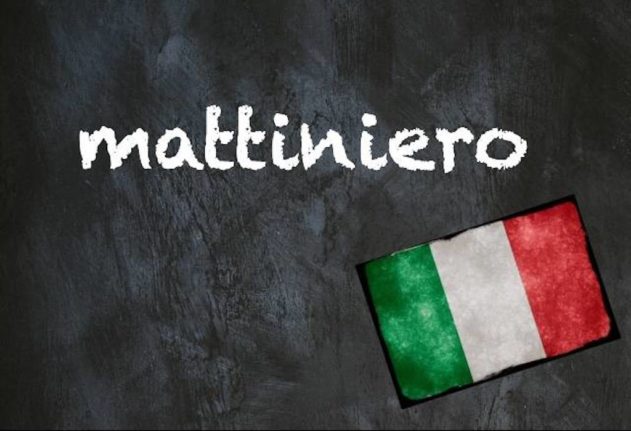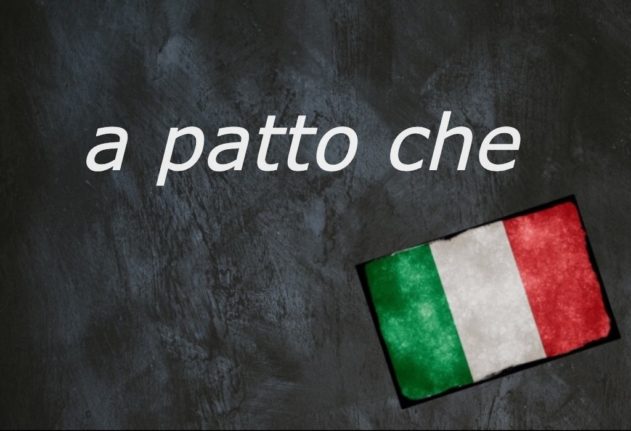If you regularly wake up as the sun’s rays are peeking over the horizon, you might identify as an early bird – or in Italian, a mattiniero.
La mattina or il mattino (this is a rare example of when both the feminine and masculine forms are valid) is Italian for morning, so a mattiniero/a is someone who’s up with the morning – who rises with the dawn, we might say in English.
It can be used as a noun in its own right, though you’ll often see it used as an adjective; most commonly attached to the noun tipo/a (‘type’ / ‘guy’/ ‘girl’), to mean ‘morning person’.
Vedo che non sono l’unica mattiniera nell’appartamento.
I see I’m not the only early bird in the apartment.
Non sono mai stato un tipo mattiniero.
I’ve never been a morning person.
– Dov’è Giulia?
– È andata a letto, domani deve fare il turno mattiniero al lavoro.
– Where’s Giulia?
– She’s gone to bed, she has to pull an early shift at work tomorrow.
As in most countries, being an early riser is generally viewed as a positive quality in Italy.
While in English we say “the early bird catches the worm”, in Italian you’d say “il mattino ha l’oro in bocca” – literally, ‘the morning has gold in its mouth’; i.e., early risers have the opportunity to make their fortune.
That’s also the title of a 2008 film starring Elio Germano as a rising radio show host whose gambling habit slowly consumes his life.
What’s the opposite of a mattiniero/a, you might wonder?
The Treccani dictionary offers up dormiglione (sleepyhead, from the Italian verb dormire, to sleep); pigrone, from the adjective pigro (lazy); or poltrone (couch potato) – none of which are particularly flattering.
Do you have an Italian word you’d like us to feature? If so, please email us with your suggestion.
Make sure you don’t miss any of our Italian words and expressions of the day: download our new app (available on Apple and Android) and then selecting the Italian Word of the Day in your Notification options via the User button.



 Please whitelist us to continue reading.
Please whitelist us to continue reading.
Member comments